The space industry is one of the most rapidly growing industries in the world. There are many private companies that are currently working on developing spacecraft and rockets.
Space exploration is one of the most important endeavors undertaken by human beings. It has helped us learn a great deal about our universe and has allowed us to make many remarkable discoveries.
There are a number of space agencies around the world that are responsible for carrying out these amazing investigations.
These agencies collaborate to conduct a variety of missions, including studying the origins of the universe, probing the mysteries of dark matter and energy, conducting Earth science research, and monitoring climate change.
Each agency has its own strengths and weaknesses, but they all share a common goal: to explore space and learn more about our universe. In this article, we will take a look at 11 of the most notable space agencies in the world.
In this guide, we ranked and reviewed the 11+ top 10 space agencies in the world, along with our top 3 choices, so that you can pick the best one for you.
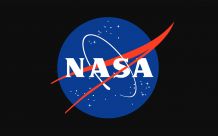
NASA – National Aeronautics and Space Administration
(Best XYZ)
Overall Rating: 4/5
NASA was founded on July 16, 1958, by President Dwight D. Eisenhower. At the time, the United States was struggling to recover from the aftermath of World War II.

RFSA – Russian Federation Space Agency
(Best XYZ)
Overall Rating: 3/5
The Russian Federation Space Agency, known as RFSA for short, is a government-owned organization responsible for space exploration.
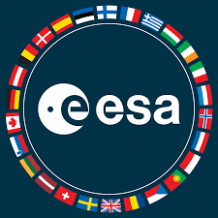
ESA – European Space Agency
(Best XYZ)
Overall Rating: 5/5
The European Space Agency (ESA) was founded in 1975 as a merger of three separate space organizations: the European Atomic Energy Community.
List of Top 10 Space Agencies in the World
1. NASA – National Aeronautics and Space Administration
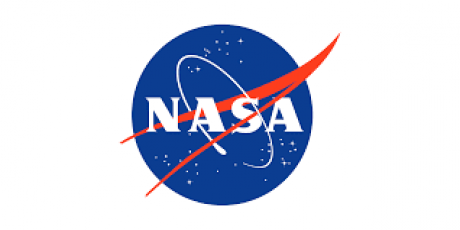
NASA was founded on July 16, 1958, by President Dwight D. Eisenhower.
At the time, the United States was struggling to recover from the aftermath of World War II.
Eisenhower believed that space exploration was one way to show the world that America was back and ready for competition.
Since its inception, NASA has played a major role in advancing knowledge about our planet and exploring the outer limits of our solar system.
Annual NASA's budget was aprox $19.5 billion. The agency employs over 30,000 people and operates 15 research centers and laboratories throughout the United States.
The agency is dedicated to advancing human knowledge and exploring the universe. It does this by conducting research in aeronautics, aerospace engineering, Earth sciences, mathematics, and physics & regarded as1 best space agency in the world
In addition to its research activities, NASA also provides education and outreach programs that help people around the world understand its work.
For example, it offers space grants to universities that help them conduct research in space-related fields. It also operates the National Science Foundation (NSF) which funds scientific research projects in universities across the United States.
Finally, NASA is responsible for managing the US Government's space shuttle program which launched astronauts into orbit more than 25 times.
Features
2. RFSA – Russian Federation Space Agency

The Russian Federation Space Agency, known as RFSA for short, is a government-owned organization responsible for space exploration.
The Russian Federation Space Agency (RFSA) was founded on April 25th, 1995.
At that time, the RFSA had a total of 73 employees and an annual budget of $1 million.
The agency is headquartered in Moscow and oversees the development of Russian space technology. In terms of its research and development, RFSA is one of the top space agencies in the world.
The agency's main focus areas are spacecraft design and construction, rocket propulsion systems, space navigation, instrumentation and monitoring systems, as well as human spaceflight.
Today, it's one of the world's leading space agencies and is responsible for the operation of Russia's space systems.RFSA has played a significant role in many space missions, including the first ever manned mission to the moon.
Features
3. ESA – European Space Agency
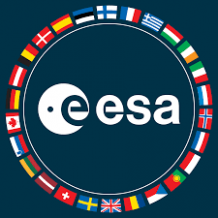
The European Space Agency (ESA) was founded in 1975 as a merger of three separate space organizations. It is one of the top space agencies in the world.
The European Atomic Energy Community, the European Space Research Organization, and the European Navigation Satellite System.
ESA is headquartered in Noordwijk, Netherlands and has a staff of more than 11,000 people.
It is an intergovernmental organization with member states from all over the world. ESA's mission is to develop Europe's space capability and to contribute to the global exploration and use of space.
The agency's activities are divided into two main fields: Earth observation and space research.
ESA has been instrumental in mapping the whole Earth and is responsible for many important advances in space exploration, including the discovery of water on Mars, the first successful landing on an asteroid, and the building of Europe's largest telescope.
The organization also provides training and support to the development of space-related technologies
Features
4. ISRO – Indian Space Research Organisation
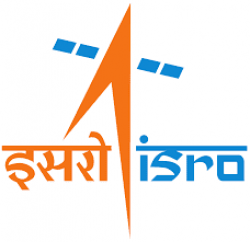
India's space program was founded by Vikram Sarabhai and Homi Bhabha.
Together, they organized space research in India and spearheaded the development of the Indian Space Research Organisation (ISRO).
This laboratory became the birthplace of organised space research in India.
In 1956, Vikram Sarabhai and Homi Bhabha formed the Physical Research Laboratory at Ahmedabad, India.
In 1962, Sarabhai and Bhabha established the Tata Institute of Fundamental Research (TIFR), which continues to be one of the leading centres for scientific research in India.
In 1970, ISRO was established as an autonomous body under the Department of Atomic Energy (DAE), with Sarabhai as its first chairman.
Under his leadership, ISRO has made great strides in space exploration, including launching satellites and sending manned missions to the Moon.
Today, ISRO is a world-class space agency that is responsible for launching satellites and conducting various other forms of space research.
ISRO has conducted many groundbreaking space missions, including the first interplanetary mission, the moon landing, and the first spacecraft to enter Mars' orbit.
ISRO's aim is to provide affordable access to space for all countries, and it currently has a number of satellites in orbit.
Features
5. CNSA – China National Space Administration

The China National Space Administration, or CNSA for short, is a national space agency headquartered in Beijing, China.
It was founded on 23 April 1993 by the State Council of the PRC.
It is one of the three major space agencies in China, along with the Chinese Academy of Sciences and the State Administration of Science, Technology and Industry for National Defence.
CNSA's mandate is to develop China's space capabilities and make contributions to international cooperation in space exploration and utilization.
CNSA has been engaged in various international cooperation projects such as the construction of the International Space Station with Russia and Europe, co-operation on the development of China's launcher family including the Long March series launch vehicles and Shenzhou spacecraft, and engagement in international astronomy research.
Currently CNSA is focused on developing a new generation launch vehicle to carry payloads to deep space destinations.
Features
6. JAXA – Japan Aerospace Exploration Agency
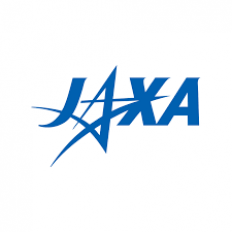
JAXA, or Japan Aerospace Exploration Agency, was founded on October 1st, 2003 by the merger of two aerospace firms: JASDF and NASDA.
JAXA is a national space agency with its headquarters in Tokyo, Japan.
It is a government-owned and operated organization that specializes in aerospace research and development.
JAXA's main aim is to explore space, develop new technologies, and promote the use of space for economic purposes.
Its stated mission is "to support the realization of an open and peaceful international space environment and contribute to advances in the field of space science and technology".
JAXA is the country's leading space agency with a long history of human space exploration.
The agency has played an important role in many Japanese achievements in space technology including building the first Japanese satellite and launching numerous robots into space.
JAXA is also working on a number of cutting-edge projects such as the development of heavy lift launch vehicles and human spaceflight capabilities.
Features
7. SSI – Space Studies Institute in California

The SSI is a private, non-profit research institution in California with a long history of leadership in space studies.
It was founded by Gerard K. O'Neill, one of the leading physicists of the 20th century, in 1977.
O'Neill envisioned the SSI as a place where scientists could work together to address the many challenges facing space exploration.
Today, the SSI is home to more than 1,000 researchers from 40 countries who are working on a wide range of projects related to space exploration and development.
SSI is dedicated to the study of space, its resources, and their application to human development.
The Institute has a broad research agenda, with program areas including aeronautics and space engineering; astronomy and astrophysics; earth science; energy and resources; marine sciences; space policy and planning; and space transportation.
O'Neill conceived of SSI as a way to conduct research into outer space that would be both scientifically and politically acceptable. Today, SSI is a leading provider of space-related education, research, and outreach programmes.
Features
8. Canadian Space Agency
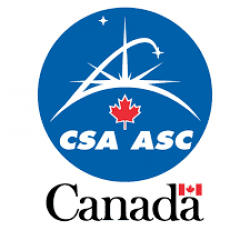
On 1 March 1989, the Canadian Space Agency (CSA) was officially created with the passage of the Canada Space Act.
At that time, it was one of only a few agencies in Canada with a mandate to explore and develop space technology.
The CSA is headquartered in Ottawa and operates under the Government of Canada.
The CSA's mandate is to promote Canada's interests in space science and technology, and to support the country's leadership role in international space cooperation.
The agency operates a number of satellites and observatories, as well as Canada's first space station, Canadarm2.
It also manages Canada's contribution to the International Space Station (ISS). In total, the CSA has launched more than 50 missions into space.
The Agency’s mandate is to support Canada’s economic and social development by advancing knowledge and understanding of space, and by providing services that promote national security and contribute to the growth of an innovative economy.
Features
9. Space Exploration Technologies Corporation (SpaceX)
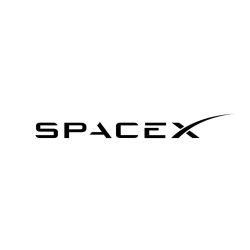
Space Exploration Technologies Corporation (SpaceX) was founded on 14 March 2002 by entrepreneur Elon Musk with the goal of providing affordable access to space.
Today, SpaceX is a leading manufacturer of spacecraft and rocket technology with a growing presence in the commercial satellite industry.
With its Falcon 1 and Falcon 9 launch vehicles, SpaceX has made history by successfully launching multiple satellites into orbit.
The company's mission is to help make humanity a multi-planetary species.They started out by designing and manufacturing rockets and spacecraft for NASA. Today, SpaceX is one of the most promising companies in the space industry.
They continue to design and manufacture advanced rockets and spacecraft for NASA, commercial customers, and the space industry as a whole.
Musk is also involved in a number of other businesses, including SolarCity, Hyperloop, The Boring Company, and The Mars Society.
Features
10. German Aerospace Centre (DLR)

German Aerospace Centre, also known as DLR, was founded on April 24, 1959. DLR is a scientific research institute located in Cologne, Germany.
It is one of the world's leading space agencies and has a long history of achievements in aerospace research.
DLR has played a pivotal role in the development of Germany's space program. In 1958, DLR established the first German ground station for tracking satellites.
DLR also developed the Arion reconnaissance satellite, which was used to spy on the Soviet Union during the Cold War. More recently, DLR was responsible for developing the Reusable Launch Vehicle (RLV) — Europe's first reusable spacecraft.
Today, DLR continues to play an important role in space research by working on projects such as the development of autonomous flying taxis and establishing a European presence on the International Space Station (ISS).
DLR employs over 6,000 people and has branches in more than 20 countries.
DLR operates five centres: the Institute of Flight Mechanics and Structures, the Institute for Atmospheric and Space Research, the Institute for Magnetic Research, the Institute for High Energy Physics, and the Institute of Mechanical Technology.
DLR has played an important role in the development of Germany's space program. It is also responsible for many ground-breaking research projects in other areas of science and engineering.
Features
11. Italian Space Agency (ASI)

The Italian Space Agency (ASI), also known as Agenzia Spaziale Italiana (ASI), is the national space agency of Italy.
It was founded on 1 January 1988, the day of the country's new Constitution.
The agency is a member of the European Space Agency (ESA) and the International Astronomical Union (IAU).
Its headquarters are located in Rome, Italy.
ASI is responsible for civilian and military space programmes, as well as for institutional development in the field of space science and technology.
ASI operates three main facilities: the Galileo satellite navigation system; the Proteus satellite platform for weather and climate research; and the radar astronomy facility, which includes the Radiotelescope at Arecibo Observatory in Puerto Rico.
Today, ASI is responsible for managing Italy's participation in ESA programmes and endeavours to develop new technologies that can be used in future space missions.
Features
12. National Centre for Space Studies

On 19 December 1961, the French government announced the establishment of the National Centre for Space Studies ( CNES ).
The main objectives of this organization were to develop France's space program and to provide scientific and technical support for any international space activities.
Initially, CNES was located in Versailles, but in 1984 it moved to Paris. It employs over 2,000 people and has a budget of almost €500 million.
Today, CNES is a leading research center with a strong focus on earth and space sciences.
CNES provides support for numerous international cooperation projects, such as the European Space Agency (ESA) and the International Space Station (ISS).
CNES is also responsible for research in astronomy, Earth sciences, astrophysics, meteorology, and planetary exploration. The CNES also operates the Paris Observatory, which is one of the world's leading observatories.
Features
Conclusion
It is clear that the space industry is experiencing a boom. Some of these agencies are NASA, ESA, and JAXA.
With the advent of private companies such as SpaceX and Blue Origin, and the resurgence of interest in space exploration, the space agency landscape is rapidly changing. There are a few space agencies that have stood out over the years.
Each agency has its own strengths and weaknesses, but they all share the common goal of exploring space and helping humanity become better educated about our universe.
Frequently asked questions (FAQs)
1. What is a rank of ISRO?
ISRO ranks first in terms of number of launches, second in terms of number of satellites placed into orbit, and third in terms of distance covered by its satellites.
2. Which country has the best space agency?
There is no definitive answer to this question, as each country has different space capabilities. However, some experts believe that the United States has the best space agency.
This is because the US is the only country that has successfully launched many satellites into orbit. Furthermore, the US space agency is well funded and has a good track record of success.
3. Which is best ISRO or NASA?
There is no one answer to this question. Each organization has its own strengths and weaknesses. ISRO is better at space technology while NASA is better at planetary science.
ISRO is also better at launching satellites into space, while NASA is better at building space stations. Ultimately, it comes down to what you are looking for in an organization.
4. What is the best space agency in the world?
There are many space companies out there, but according to Forbes, the No 1 space company is SpaceX.
They are responsible for the launch of many satellites into space, and they are constantly innovating to make their launches even more efficient.
They have a very successful record, and their future looks very promising.
5. Who owns NASA?
NASA is a Federal Agency that was created in 1958. It is overseen by the United States Congress and is responsible for a variety of tasks, including the study of the earth, its environment, and its future.
NASA also conducts research into spaceflight and astronomy. In fact, it was NASA that first put a human on the moon. Today, the Agency is focused on exploring Mars and other planets.
6. Why is SpaceX better than NASA?
SpaceX is a much better choice than NASA when it comes to space travel. They have been able to achieve more in less time with their cutting-edge technology.
Their Falcon 9 rockets are much more reliable than the ones used by NASA. Additionally, SpaceX has a much better track record when it comes to launching satellites into orbit.
They have successfully launched over 50 satellites into orbit, while NASA has only managed to launch a few dozen.
Here are my picks for top 10 space agencies in the world:
Also Read: Check out my reviews of the best image editing software, the top choices for video editing software, and my full guide to start a blog for beginners.


